- Home
- Gordon Korman
The Danger
The Danger Read online
For Chris and Kyle Kovalik
CONTENTS
Title Page
Dedication
Chapter One
Chapter Two
Chapter Three
Chapter Four
Chapter Five
Chapter Six
Chapter Seven
Chapter Eight
Chapter Nine
Chapter Ten
Chapter Eleven
Chapter Twelve
Chapter Thirteen
Chapter Fourteen
Chapter Fifteen
Chapter Sixteen
Chapter Seventeen
Chapter Eighteen
Chapter Nineteen
Epilogue
Other Titles
Copyright
07 September 1665
The black wave curled high above the Griffin, and came crashing down on the barque with a roar like a wild beast. Tons of water washed over the streaming deck. As thetim in the air with enough sudden violence that men were hurled off the ship to disappear into the raging sea. Such was the nature of the great storm that pounded His Majesty’s privateer fleet in the autumn of 1665.
Young Samuel Higgins was still aboard the Griffin when she righted herself. But this was only because he had been lashed to a bulwark by York, the ship’s barber and medical officer. York had been ordered by Captain James Blade to see to the welfare of the thirteen-year-old cabin boy. The barber took this responsibility seriously. Seamen who disappointed the Griffin’s cruel master often felt the bite of his bone-handled snake whip.
The sails were down to bare poles, and the captain himself had hold of the wheel. He steered his vessel straight into the wind, howling curses at the gale.
“You’ll not stop me, by God! The Griffin will yet ride low with a belly full of Spanish gold! No storm can change that!”
There was a crash as loud as a cannon shot, and the mizzenmast snapped clean in two. One hundred feet up, the top of the pole — thick as a century oak — began its plunge to the deck below.
Samuel tried to run, but the same tether that had saved him from being pitched overboard now prevented his flight. He was trapped — trapped in the path of hundreds of pounds of falling wood. A scream was torn from his throat, but it disappeared into the shrieking of the relentless wind.
The hurtling mast struck the tangle of ratlines and rigging, halting its destructive drop less than a handspan from Samuel’s head.
Lucky. That was his nickname among the crew.
But no amount of luck would save him if the Griffin foundered in the onslaught of nature’s wrath.
Star Ling came awake with a start, and stared at her unfamiliar surroundings. The room was an undecorated stark white, with one bed — her in it — and one chair — empty. An antiseptic smell permeated the air.
A hospital?
Investigating a stinging feeling, she noted that her hand was bandaged, and a tube protruded from the taped wrapping. Her eyes followed it all the way up to a plastic bag of clear fluid that hung from an IV pole by the side of the bed. She also felt the pure oxygen being administered through a nasal tube.
Am I sick?
There was a whoop in the hallway outside. “She’s awake!”
In barged Bobby Kaczinski, Dante Lewis, and Adriana Ballantyne — Star’s dive partners. The sight of their familiar faces triggered an avalanche of memory.
Their summer internship at Poseidon Oceanographic Institute had led the four teen divers to the site of a seventeenth-century shipwreck off the Caribbean island of Saint-Luc. When their discovery pointed to the existence of a second wreck in much deeper water, they had gone to investigate in Deep Scout, Poseidon’s research sub.
Star remembered that. And then … the accident. She closed her eyes tightly to keep the tears from coming, and knew the answer before posing the hopeful question:
“Did I dream it all? The captain?”
“It was no dream,” Kaz confirmed sadly.
Captain Braden Vanover had been their friend and mentor. When everyone else at Poseidon had treated the interns like unwanted excess baggage, he had spoken up for them, taken them under his wing. He had been at Deep Scout’s controls when the submersible had failed. It was due to his skill alone that any of them had survived.
“Did we kill him?” moaned Star.
“I ask myself that a thousand times an hour,” said Adriana in a broken voice. “I haven’t got an answer.”
Dante was devastated. “It’s my fault. I’m the one who found the first wreck — and the trail leading to the second one.” Dante’s unusually sharp eyesight was the result of his color blindness. He saw only black, white, and shades of gray, but very little escaped him.
“Don’t flatter yourself, Dante,” Star told him in a voice that was weak, but very much her own. “You’re not that important.”
He looked down, embarrassed, and mumbled, “It’s good to have you back. They said you might not make it. And after what happened to the captain — ”
Star had a vision of Vanover’s drowned body, sinking slowly. She had not known that he was already dead. Her attempts to save him had drawn her too deep for too long. An emergency ascent had brought on decompression sickness — the bends — the most deadly of all diving hazards.
Star could not remember what happened after that. “Where am I?” she asked.
“Brace yourself,” Adriana advised. “You’re about sixty stories above the open ocean, in the infirmary of the main oil-drilling platform. They brought you here by helicopter to a decompression chamber.”
“Well, it worked,” said Star. “Believe it or not, I feel pretty good — except I have to go to the bathroom, big-time!”
She swung her legs over the side of the bed, and stepped down to the floor. The room spun, and she hit the linoleum, face-first.
Adriana screamed loud enough to wake the dead. “Nurse!”
White-coated staff came running.
Star sat up, her eyes wide and frightened. “I can’t walk!”
The doctor on duty was the last to appear. “Ah, you are awake.”
Two orderlies lifted her bodily and put her back onto the bed.
“Doctor, what’s happening to me?” Star cried out. “My legs won’t work!”
“Your legs are just fine,” he soothed. “It is your brain where the problem lies right now.”
“What?” Star was aghast.
The doctor explained that the brain controls the body by sending signals along neural pathways. With the bends, the body is invaded by tiny bubbles of nitrogen gas that block some of the pathways. “Your brain will attempt to develop new ones,” he concluded. “In some patients, this is more difficult than in others.”
“What do you mean?” Kaz asked anxiously. “She’ll walk again, right?”
“It is impossible to determine at this time,” the doctor replied. “It depends on the individual and the degree of neurological damage.”
“But I’ve got cerebral palsy!” Star blurted. “I limp already!”
The doctor blinked. He hadn’t been on duty when Star had been treated. “And you’re here on a dive internship?”
“She’s the best diver around!” Adriana put in. “I mean, she was — ” She fell silent.
The doctor considered this information. “It may complicate matters,” he admitted. “Then again, perhaps the same tenacity that made you a diver despite the odds will help your recovery. But your diving career is at an end. You understand this, yes?”
No more diving! Right now it didn’t seem like such a big deal, in view of Captain Vanover’s death, and with her own future in doubt. But diving had always been more than a hobby for Star Ling. Once in the water, she had no handicap. Without her diving, she would be nothing more than the girl
with the limp.
Stop it! she ordered herself. Be happy. You’re alive! You could be dead like the captain….
“And now,” said the doctor to the three visitors, “I think it is time to let your friend get some rest.”
Shattered, Kaz, Dante, and Adriana headed for the door.
“We’ll be right outside,” promised Adriana. “Just call — ”
“Actually,” the doctor interrupted, “I believe Dr. Gallagher wants you back at Poseidon.”
“That would be a first,” Kaz said bitterly.
In the fluorescent-lit corridor, Adriana let out a long breath. “Wow.”
“She’ll walk again,” Kaz vowed, convincing himself as much as the others. “Star’s tough. I’ll bet she’s more upset about not being able to dive.”
“No diving,” echoed Dante. “Where do I sign up? I will never dive again. I might not even shower!”
“Like Poseidon would even let us dive,” snorted Kaz. “What do you think Gallagher wants with us? To give us the boot, that’s what.”
“We should just leave anyway,” muttered Dante. “Save them the trouble of kicking us out.”
“I have no place to go,” offered Adriana in a thready voice. “My parents are jet-setting around the Black Sea, and our house is closed up for the summer.”
Kaz stuck out his jaw. “I’m not leaving till they force me out. I don’t want that treasure anymore, but I’m sure not going to let Tad Cutter take it. If Cutter’s team comes up with that loot, I’m going to be right here to shoot my mouth off to every newspaper and TV station from Martinique to Mars!”
Tad Cutter, from Poseidon’s head office in San Diego, was officially the scientist sponsoring the teen internships. But really, Cutter and his two partners were treasure hunters. These people had turned the entire internship program into a smoke screen to cover their hunt for the wreck of the Spanish galleon Nuestra Señora de la Luz.
“I don’t want that treasure, either,” said Dante. “I mean, I still sort of want it. But it’ll kill me if Cutter gets it.”
“Gallagher thinks he’s such a genius,” Adriana put in angrily, “but he’s too dumb to notice there’s a team of treasure hunters right under his nose. That’s the guy who’s going to make decisions about our lives.”
“Gallagher’s a total idiot,” Kaz agreed grimly. “It’s nuts even to waste our time talking about him. Who knows what could be going on in his very small mind?”
Dr. Geoffrey Gallagher leaned close to his office mirror and snipped an offending hair from his left sideburn. As the star of the video documentary on Poseidon–Saint-Luc, it was important for him to look his best. Jacques Cousteau may have been a genius, but he was too short for the screen. And those hats! Geoffrey Gallagher would put a new face on oceanography.
He turned around and regarded the three Californians seated on his couch — Tad Cutter, Marina Kappas, and Chris Reardon from Poseidon–San Diego.
“Well, Tad, what happens now?” the director asked. “We send the kids home, and you and your people go back to California?”
Cutter seemed surprised. “Of course not!” With the interns gone, he would have no excuse to remain in the Caribbean to go after the treasure. “It was an accident, Geoffrey.”
“You say that like someone dropped a tray in the commissary!” Gallagher exclaimed irritably. “A man is dead; an adolescent girl very nearly lost her life and may never walk again; and an eighteen-million-dollar piece of equipment is lying broken at the bottom of the sea! That’s not an accident — that’s a catastrophe!”
Marina spoke up. “Nobody’s downplaying the seriousness of what happened. But why penalize the interns? You don’t know them like we do. They’re good kids.”
Gallagher found himself nodding, not because he agreed with her, but because Marina Kappas was drop-dead gorgeous. He found it hard to concentrate when she was around.
“If anyone is to blame in all this,” Reardon took up the argument, “it’s Braden Vanover. He didn’t deserve to die for it, but come on! What was he thinking?”
“I agree,” said Gallagher. “Which brings up the question of where you were when all this was going on. Those kids were your responsibility.”
“I didn’t want to make a big deal out of it,” Cutter admitted, “but Braden kind of hijacked the whole internship project. Come on, Geoffrey. If you were a kid, what would you rather do — drag a sonar tow over hundreds of square miles of reef, or go deep-ocean exploring in a high-tech submersible?”
It was an absolute lie. In fact, Captain Vanover had taken an interest in the four interns only when he’d noticed that they were being completely ignored by Cutter and company.
But Gallagher didn’t know that. He asked, “And the three healthy ones are still interested in diving?”
“Maybe after a few days,” was Marina’s judgment. “But even if all they want to do is lie around the beach and fish a little, have a heart and let them. They’ve been through a lot.”
“You’re right.” Gallagher nodded. “Besides, to ship them home would leave the Ling girl here all alone. It would be a public relations nightmare if any of the kids started talking to the press. Better to keep them happy.” A vaguely annoyed look came over his face. “I sent for them today. They didn’t come. They wouldn’t leave their friend.”
There was a sharp rap at the door, and Menasce Gérard walked in.
“Hey, English,” Cutter greeted him.
No one seemed less English than English, who even had difficulty making himself understood in that language. The six-foot-five native dive guide had that nickname because legend said his family was descended from an English shipwreck survivor hundreds of years earlier. The young man was an experienced diver who worked on the oil rigs across the island. He had also done the occasional job for Poseidon — more specifically, for Braden Vanover. English and the captain had been fast friends.
He ignored Cutter and his crew, and spoke to the director. “We just came back since one half hour,” he reported in a voice heavy with exhaustion. “We do not find the body.”
Marina spoke up. “I’m so sorry, English. I know you and Braden were close.”
The guide silenced her with a single brooding glance. English knew the true nature of Cutter’s work, and had nothing but contempt for treasure hunters.
“I dive again tomorrow, me,” he went on, still speaking only to Gallagher. “After that” — he shrugged — “there is no point.”
“We’re all praying that you find him,” said Gallagher sympathetically.
“This is difficile,” English explained. “Very deep water, much time for decompression, and not so much time for looking. I ask for use Tin Man. Then I can search till I find.”
Tin Man was the nickname for Poseidon’s one-atmosphere diving suit. This highly advanced rigid suit maintained surface pressure at any depth. The diver could descend as deep as necessary, and stay as long as necessary. Physically, he or she would never have left the surface.
“I’m sorry, English,” the director said seriously, “but Tin Man is a vital part of what we do here at Poseidon. Scientists reserve its use months in advance. I’m afraid the answer has to be no.”
The big man scorched him with eyes of fire. “Alors, I think maybe you do not pray as hard as you say.”
Star threw off the covers and swung her legs over the side of the mattress. She paused as a sweat broke out all over her body. She’d been in some tough spots — many of them right here on Saint-Luc — but she couldn’t recall fearing anything as much as she now feared putting her feet on the floor.
She recalled the doctor’s words: “There is no physical therapy for what you have. Your legs are not damaged. The problem is in your brain. Only you can make yourself walk again.”
Clinging to the bed rail with her left hand, she swung over and balanced herself on the right side with a death grip on the nightstand. Her feet touched the floor. The contact felt normal, familiar.
So far,
so good. She let go.
The collapse was total. Both legs buckled. In the nick of time, she flung her arms wide and broke her fall.
A second later, Dante’s excited voice was heard from the doorway. “I think she’s getting better. She’s doing push-ups!”
“Tell me you’re not as dumb as the things you say,” Star pleaded breathlessly.
Dante and Adriana picked her up off the floor and helped her back into bed.
Adriana was sympathetic. “Still no good, huh?”
Star grimaced in disgust. “I’m lucky I didn’t break both my wrists when I went down.” She spied the duffel slung over Dante’s shoulder. “Hey, thanks — you brought my stuff.”
“Not only that,” said Adriana with a grin. She unzipped a side pocket and pulled out a paper bag soaked through with grease. From it she took a dripping sandwich on a once-crusty bun. “It got a little soggy,” she said apologetically. “We had to wait over an hour for the motor launch to come out to the rig.”
Star’s eyes shone. “A conch burger! You guys are awesome. The food on the oil rig is just a notch above poison. No wonder English is so crabby all the time. He probably eats his meals here.” She attacked the sandwich with gusto while sifting through her belongings with her free hand.
“My dive log,” she exclaimed, holding up a well-thumbed diary. Her face fell. “Oh, yeah. Ancient history.” She shook out some articles of clothing, a toiletry bag, a Walkman, and a stack of dive magazines.
An ivory-white object about a foot long fell out onto the blanket beside her. “Hey. What’d you bring this for?”
It was a carved whalebone handle that Star herself had found in the 340-year-old wreckage of Nuestra Señora de la Luz. The initials J.B. were etched above a large dark stone that was obscured by coral growth. Adriana had e-mailed a photograph of the piece to her uncle, an antiquities expert with the British Museum. He had identified it as the handle of a walking stick or whip, definitely English in origin. This was puzzling, because Nuestra Señora was a Spanish galleon. Every other artifact brought up by either Cutter or the four interns had been of Spanish origin.

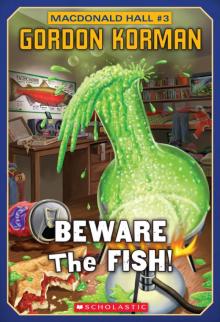 Beware the Fisj
Beware the Fisj Slacker
Slacker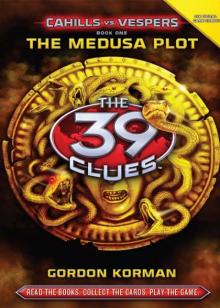 The Medusa Plot
The Medusa Plot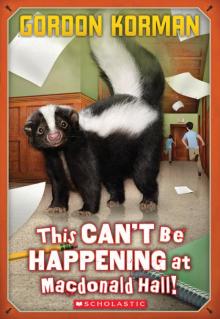 This Can't Be Happening at MacDonald Hall!
This Can't Be Happening at MacDonald Hall!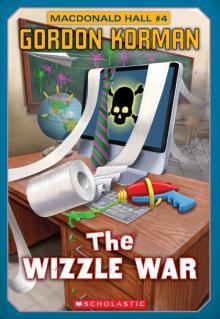 The War With Mr. Wizzle
The War With Mr. Wizzle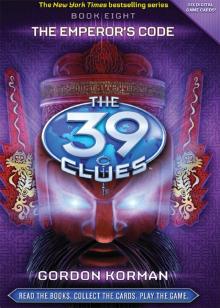 The Emperor's Code
The Emperor's Code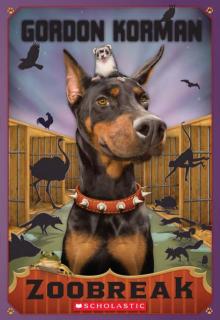 Zoobreak
Zoobreak The Danger
The Danger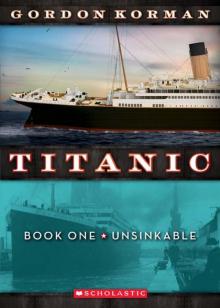 Unsinkable
Unsinkable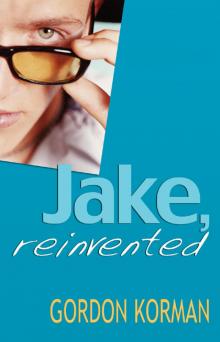 Jake, Reinvented
Jake, Reinvented No More Dead Dogs
No More Dead Dogs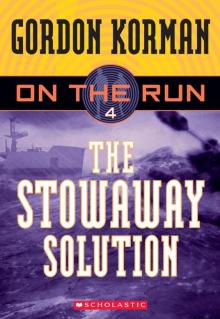 The Stowaway Solution
The Stowaway Solution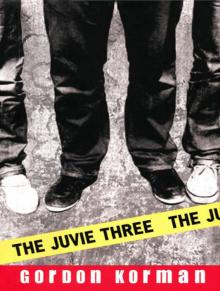 The Juvie Three
The Juvie Three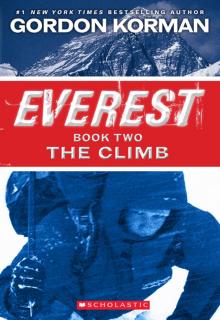 The Climb
The Climb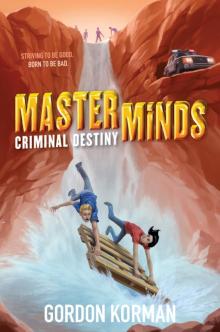 Criminal Destiny
Criminal Destiny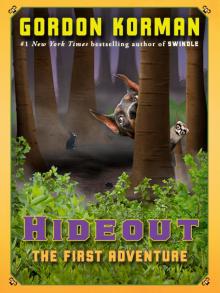 Hideout: The First Adventure
Hideout: The First Adventure Flashpoint
Flashpoint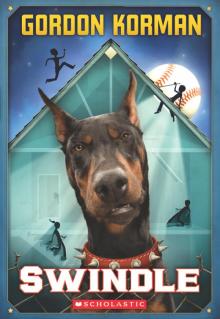 Swindle
Swindle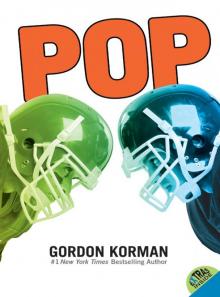 Pop
Pop The Rescue
The Rescue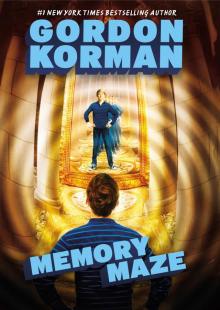 Memory Maze
Memory Maze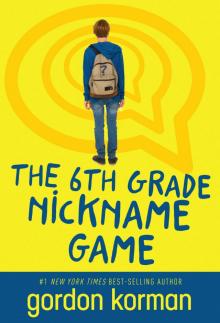 The Sixth Grade Nickname Game
The Sixth Grade Nickname Game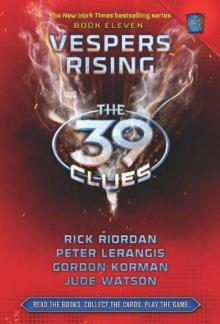 Vespers Rising
Vespers Rising Collision Course
Collision Course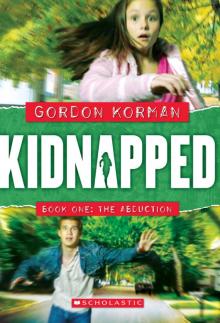 The Abduction
The Abduction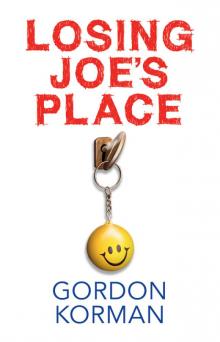 Losing Joe's Place
Losing Joe's Place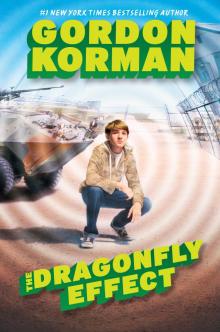 The Dragonfly Effect
The Dragonfly Effect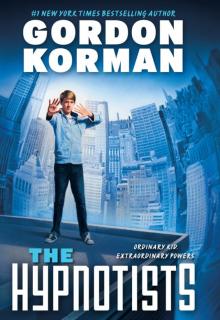 The Hypnotists
The Hypnotists Survival
Survival Lights, Camera, DISASTER!
Lights, Camera, DISASTER! Payback
Payback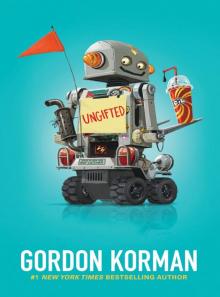 Ungifted
Ungifted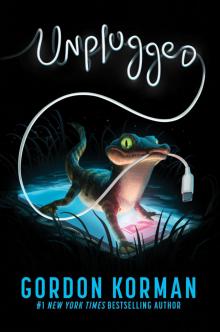 Unplugged
Unplugged Framed
Framed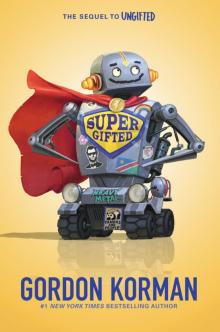 Supergifted
Supergifted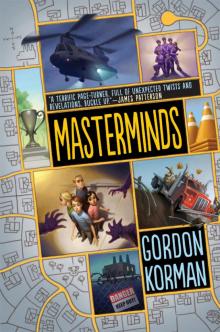 Masterminds
Masterminds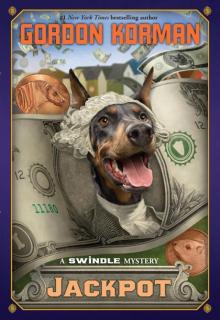 Jackpot
Jackpot Don't Care High
Don't Care High The Deep
The Deep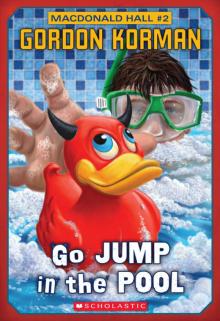 Go Jump in the Pool!
Go Jump in the Pool!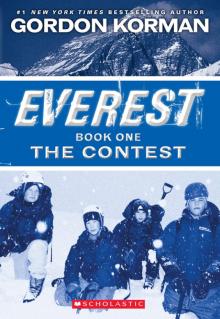 The Contest
The Contest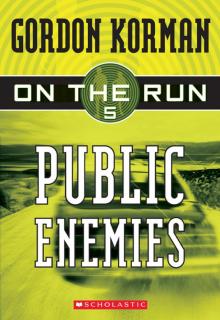 Public Enemies
Public Enemies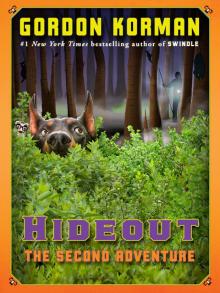 Hideout: The Second Adventure
Hideout: The Second Adventure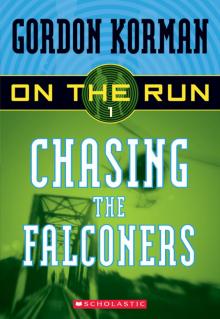 Chasing the Falconers
Chasing the Falconers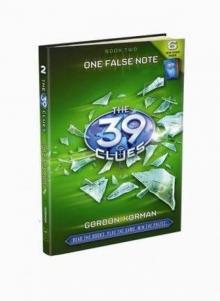 One False Note
One False Note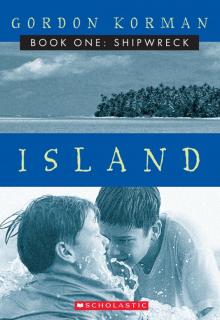 Shipwreck
Shipwreck Jingle
Jingle Unleashed
Unleashed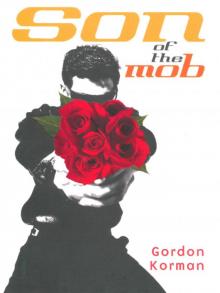 Son of the Mob
Son of the Mob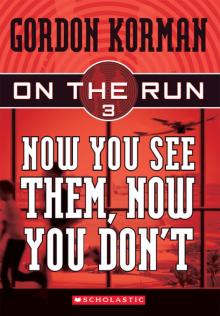 Now You See Them, Now You Don't
Now You See Them, Now You Don't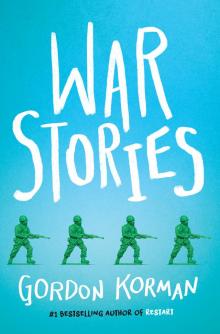 War Stories
War Stories Schooled
Schooled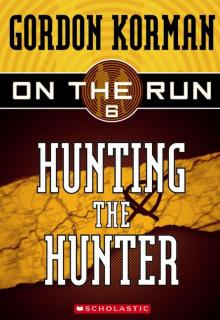 Hunting the Hunter
Hunting the Hunter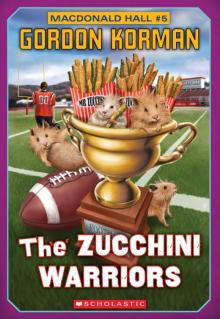 The Zucchini Warriors
The Zucchini Warriors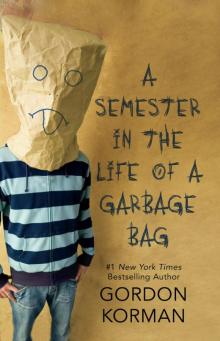 A Semester in the Life of a Garbage Bag
A Semester in the Life of a Garbage Bag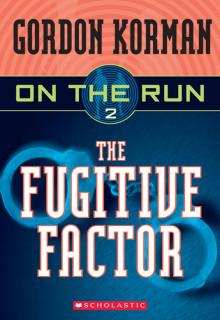 The Fugitive Factor
The Fugitive Factor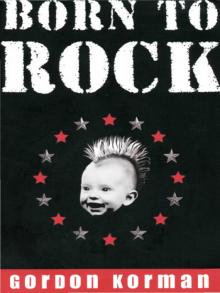 Born to Rock
Born to Rock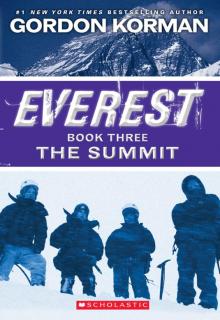 The Summit
The Summit Showoff
Showoff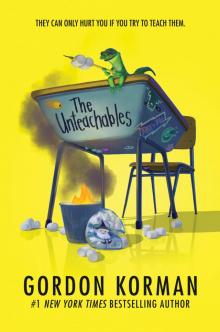 The Unteachables
The Unteachables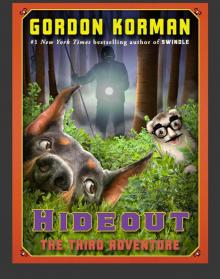 The Third Adventure
The Third Adventure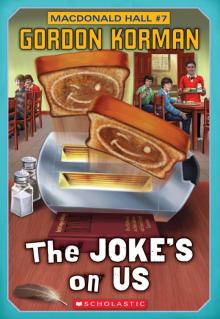 The Joke's on Us
The Joke's on Us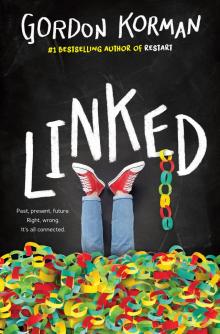 Linked
Linked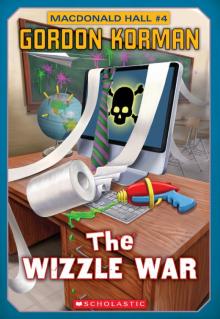 The Wizzle War
The Wizzle War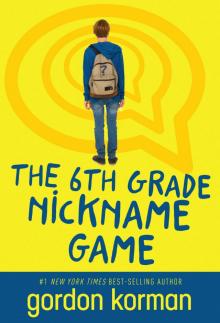 The 6th Grade Nickname Game
The 6th Grade Nickname Game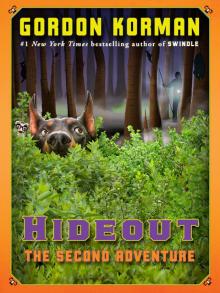 The Second Adventure
The Second Adventure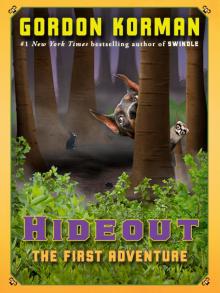 The First Adventure
The First Adventure![39 Clues : Cahills vs. Vespers [01] The Medusa Plot Read online](http://i1.bookreadfree.com/i2/04/10/39_clues_cahills_vs_vespers_01_the_medusa_plot_preview.jpg) 39 Clues : Cahills vs. Vespers [01] The Medusa Plot
39 Clues : Cahills vs. Vespers [01] The Medusa Plot